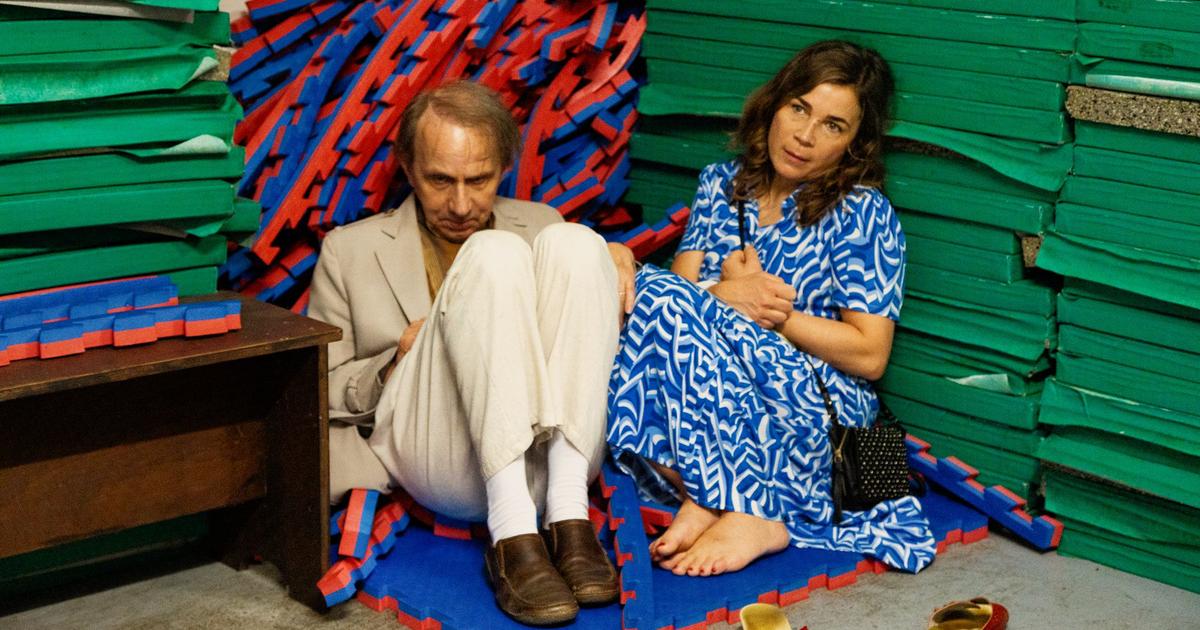Italian Prime Minister and former ECB President Mario Draghi has posed an interesting dilemma to European leaders.
According to him, the time has come to answer a simple question: what do we prefer, peace or air conditioning?
The well-known answer is that we prefer air conditioning.
The essence of Europe and our lives consists precisely in choosing comfort and privilege over any other idea or common good.
In fact, the greatest characteristic of the contemporary European is the great gap that divides his ideas (ideals) from his actions.
For years we have had to choose between air conditioning and the climate crisis, for example.
Or between betting on the local business or buying on Amazon even knowing that it destroys our beloved bookstores, greengrocers or hardware stores.
We also have to choose between eating large farm pork or paying more for meat raised in a more sustainable way, or between buying cheap clothes and renewing them many times or opting for a more expensive, durable and sustainable product.
In the same way, we see the distance that opens up between contemplating the invasion of Ukraine with great pain or welcoming a family whose life has been destroyed in our homes.
The solution is always the same and part of a structural violence: a chosen few maintain our supremacy at the expense of health, life and the deterioration of the rest of living beings (be they people,
More information
Follow live the last hour of the war in Ukraine
We should tell Mr Draghi that we want peace and air conditioning.
And that the dilemma that he poses is pure demagoguery.
In fact, more than a dilemma, it is an affirmation, since it confirms that there is an inverse relationship between peace and air conditioning.
A dangerous trap, because, by confronting comfort with peace, he affirms that both things are incompatible.
Or what is the same, that to turn on the air conditioning we need war.
In this sense, the question is more populist than democratic.
Because, in reality, the political dilemma is different and it is not the one that separates air conditioning (or energy) from peace.
In other times, not so long ago, the fascist regime of Benito Mussolini distributed posters with a very similar message:
“Donkey or cannoni?”
("cannons or butter?").
So the objective was to explain to the Italians that the shortage of basic foodstuffs was due to the fact that it was necessary to bet on weapons.
Cannons will bring us peace, was the thesis, while butter will only make us fatter.
The rational choice seemed obvious.
Draghi would have improved Mussolini's proposal with a more sophisticated demagoguery: what do you prefer, to be fat or to have peace?
I consider it especially brilliant to change the dilemma of cannons for peace because, deep down, nobody wants to choose (today) cannons.
The perfect thing (and the most European) is to choose peace while others continue to kill.
Because, in fact, Draghi's dilemma (like so many others in European democracies) is not based on defending an idea and a life project, peace in this case, but on defending material interests.
That is why he presents us with a political challenge of the first order from which the lives of millions of people hang, based on an analysis based on the opportunity cost.
Because what Draghi is basically suggesting —and so many politicians who have the same dilemma— is that war is wrong because it threatens European interests and that (and no other) is the only reason why we would be willing to spend heat in summer.
And that is because our freedom and our homes are threatened by Putin's imperialist desire.
And, if we don't stop him today, many Europeans may see our homes threatened in several years.
The issue is therefore not the peace of Ukraine or the lives of people who have died or lost their cities and homes;
the dilemma is not peace either.
The question is to stop Putin.
Because he, unlike other dictators, is a threat to Europe, and in this sense Draghi appeals with his dilemma to our material well-being, the only thing that can move a European citizen politically.
He says peace, but what he really means is selfishness.
What he points out to us is that the most selfish thing (and, therefore, the best thing for us) is, on this occasion, peace.
A theory as old as Adam Smith himself: pure market applied to peace, war and human rights.
What we know today is that this theory is not only ineffective, but that it leads us to extinction.
It is a fact: self-interest as the exclusive support of democracy has failed.
Once again, the real challenge for Europe is to narrow the gap between ideals and actions.
That politics can dialogue (and not always coincide) with economic interest and that we assume once and for all that a project based on material interests does not necessarily lead to a better life or even a good life.
Exclusive content for subscribers
read without limits
subscribe
I'm already a subscriber

/cloudfront-eu-central-1.images.arcpublishing.com/prisa/AFU33ZTMP7KI4MNCATZNQC5FNI.jpg)









/cloudfront-eu-central-1.images.arcpublishing.com/prisa/KMEYMJKESBAZBE4MRBAM4TGHIQ.jpg)


